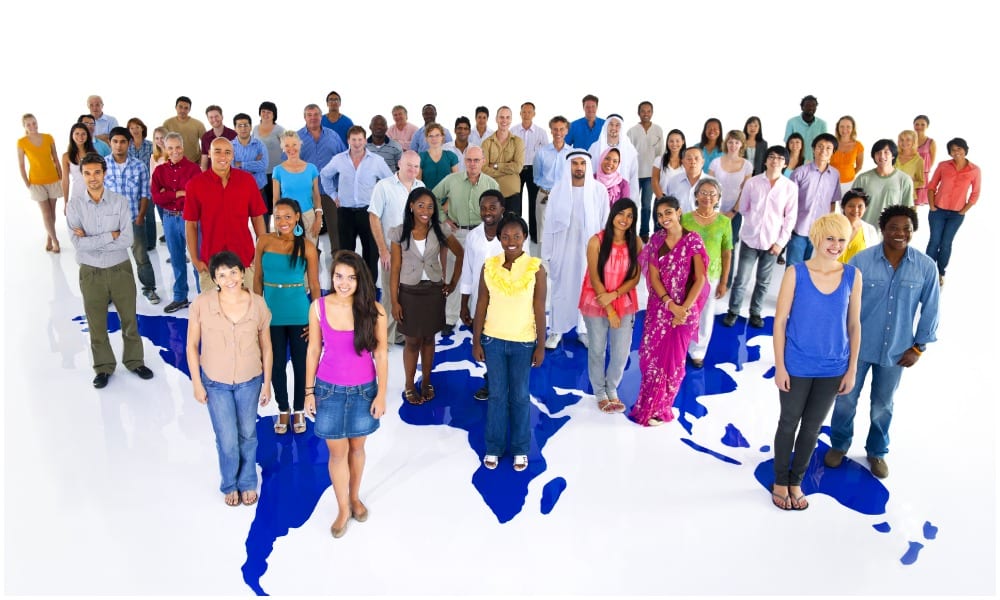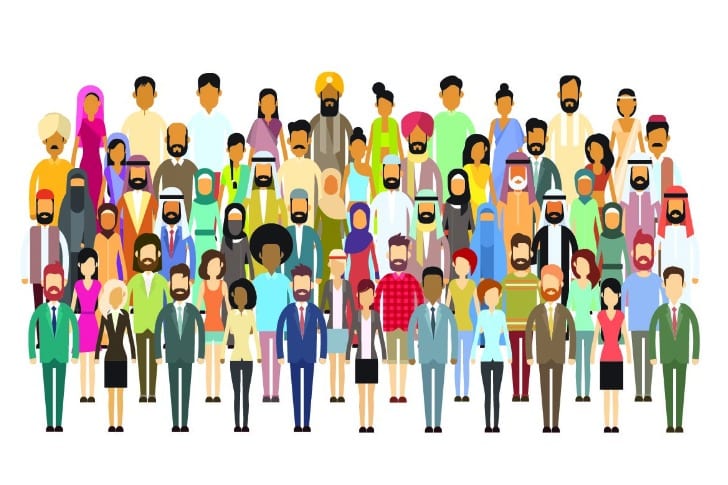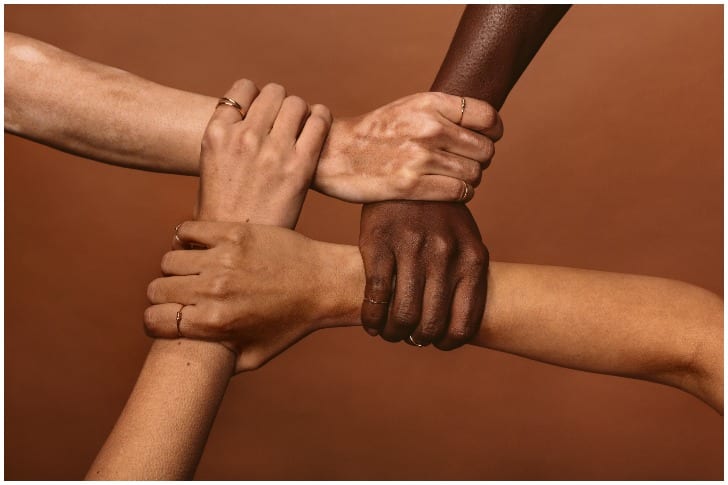
Here’s the Difference Between Race and Ethnicity


ProStockStudio/Shutterstock: People from all over the world
Humans are diverse with all kinds of backgrounds and stories. The idea of race and ethnicity is so intertwined that we often end up using the terms interchangeably. However, they are not the same. Here’s how you can differentiate between the two.
According to Nina Jablonski, a palaeobiologist and anthropologist at the Penn State University, race is a mix of physical, cultural, and behavioral features. Ethnicity, on the other hand, is about language and a shared culture.
In simpler words, one’s race is part of their biology—it’s what they’ve inherited from their ancestors. Ethnicity is what we acquire based on where we live and the culture we share with others. But it’s not that simple to separate the two because there’s so much overlap.
The Idea of ‘Race’

oneinchpunch/Shutterstock: Races in the world
This concept can be traced back to the 1700s when Johann Friedrich Blumenbach, a German anthropologist, attempted to classify humans based on how they looked and where they were from. He used geography, skin color, and the size and shape of skulls to make these differentiations.
Blumenbach even went on to call Caucasians ‘beautiful’ which later fueled the belief that some races were superior to others. This has historically led to colonization, apartheid, slavery, and genocide, and continues to create social and political problems even now.
Most modern-day scientists now agree that the DNA of human beings is 99.9% alike. This means that the genetic differences in humans are so little that we all essentially belong to just one race.
This means that ‘race’ is a ‘social construct’ and not based on science. It is a human creation used to group together people of similar skin color, hair, facial shapes, etc.
What Is ‘Ethnicity?’

Jacob Lund/Shutterstock: A mix of all cultures and languages
As mentioned earlier, ethnicity is about a person’s language, family, culture, religion, and place of origin. For example, if someone is born to Indian parents in Chicago, they may consider themselves racially Asian, but ethnically Indian, American, or American-Indian.
Both ethnicity and race are socially defined and not biologically valid. The most significant difference between the two is that race is usually a term assigned by other groups to a person.
Also, racial identity is inherent. It’s something you’re born into. Ethnicity, on the other hand, is a choice, and you can change it.
Despite being abstract concepts, both race and ethnicity have a great deal of influence in the real world. This may leave us wondering whether it’s best to shun these terms or feel indifferent. The truth is they can either be used to understand human diversity or to divide us. It’s up to each one of us to choose what we do with it.
More in Culture
-
`
Vale Ventures to Invest in Mantle, A Startup for Carbon Capturing
In a bold move towards a greener future, Vale Ventures has made headlines by announcing an investment in the Boston-based startup...
September 25, 2024 -
`
Is Selena Gomez a Billionaire?
Recently, rumors of Selena Gomez’s billionaire status, fueled by her ever-expanding business ventures and skyrocketing influence, have gained traction. Gomez, who first...
September 18, 2024 -
`
New ‘Medicare Card’ Scam Is On the Rise – Here’s What You Should Do
Have you recently received a call asking you to verify your Medicare number to get a new card? If so, be...
September 13, 2024 -
`
What Is a Stock Split? Understanding How It Works
Stock splits are a fascinating aspect of the financial world that often pique investors’ curiosity. When a company announces a stock...
September 6, 2024 -
`
Cardi B No Makeup: Proof That She’s a Natural Beauty Queen
Cardi B is known for her bold and extravagant style, often capturing attention with her vibrant fashion choices and daring beauty...
August 31, 2024 -
`
How Long Has Forbes Been in Business? – And What Lies Ahead
For over a century, Forbes has been a pillar of business journalism and financial reporting. Since its inception in 1917, Forbes...
August 21, 2024 -
`
Are House Prices Going Down in Orange County in 2024?
In June 2024, Orange County saw a notable shift in its real estate landscape. This leads many to wonder if house...
August 14, 2024 -
`
What Are Specified Investment Products? SIPs Explained
Navigating the world of investing can be complex, especially when it comes to Specified Investment Products (SIPs). These financial instruments often...
August 7, 2024 -
`
Why Leonardo DiCaprio Never Dated Kate Winslet: The Iconic Duo’s Relationship Update
It has been 25 years since Titanic’s release, a film that has left an indelible mark on the hearts of audiences...
July 29, 2024














You must be logged in to post a comment Login